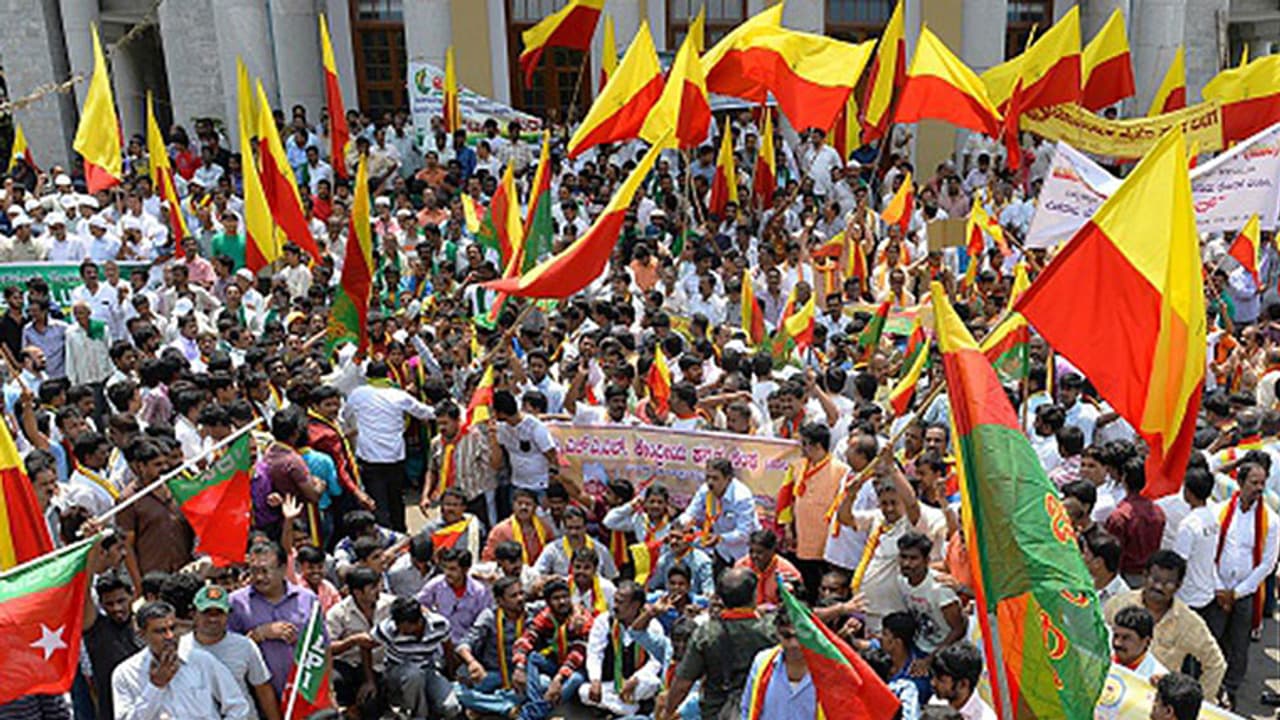This sort of a defiance is fraught with danger and will lead to a constitutional deadlock. Tamil Nadu is likely to file a contempt of court petition on Monday 26-09- 2016.
Supreme Court's third straight order in a fortnight to release more Cauvery water to Tamil Nadu has shocked the people of the state.

CM Siddaramaiah's government is mulling the possibility of defying the SC order and tap the growing public resentment.
During the ministers' meeting in Bengaluru on Wednesday, the mood was one of frustration and anger. Many in the team have asked the government to defy the order and get ready to face the 'consequences'.
This sort of a defiance is fraught with danger and will lead to a constitutional deadlock.
The court may direct the Centre to dismiss the Karnataka government on the grounds of causing a "constitutional breakdown". The court could then seek compliance of its order by the state under President's rule.
For now, Karnataka has not officially violated the Supreme Court ruling, as it has not refused to release water to Tamil Nadu but has only postponed the order. There is a provision to postpone or delay the implementation of a court order when there is a firm reason to do so.
The Congress dilemma:
Karnataka is the only major state currently under Congress rule. The Congress high command may be unwilling to take such a huge risk.
The Constitutional Deadlock:
1. Tamil Nadu is likely to file a contempt of court petition on Monday 26-09- 2016. The Chief Secretary has to respond to the notice; he can submit the resolutions of government taken in legislative assembly. The Supreme Court takes contempt cases quite seriously.
2. The court can hold the Chief Secretary as responsible and instruct the government to take action against both the State Secretaries. The possibility of imprisonment cannot be denied.
In this scenario what are the options before Karnataka?
1. Build an all-party consensus and let the Assembly decide:
The all-party meeting, which was boycotted by the BJP, told the Chief Minister unequivocally to stop further release of water to Tamil Nadu, as the state did not have sufficient water to meet its drinking water requirements. The JD(S), which attended the meeting, also favoured defying the Supreme Court's order.
The state Cabinet met later at night and decided to defer any decision on water release until obtaining a consensus at the special session of the state legislature, which has been convened on Friday.
When the decision is taken in the Legislative Session, it will not be government’s fault alone. It is not CM’s decision but the decision of the whole Assembly.
If the court decides to impose a 'contempt of court' order, it has to be imposed on the entire Assembly. And there is a lower chance of the Judiciary punishing the entire Assembly.
However, if any action is taken by the Judiciary, it will amount to a Constitutional crisis.
2. Appeal to revise the verdict:
Technically, it is possible for Karnataka to plea to the Supreme Court for a revision of its verdict. The state can also submit a curative appeal. But the appeal will come before the same bench.
Hence the hopes of for reconsideration are low.
The Karnataka government had already submitted a plea to revise the verdict on 12th September and did not get a favourable response for that either.
3. Raise the impending drought situation:
After explaining the grievances of Karnataka's farmers and the shortage of water in the Cauvery basin, the state can also question the order of the Supreme Court for the formation of the Cauvery Management Board.
The Karnataka government can raise the plea with SC that it cannot release any more water given the drought situation and poor storage levels in the reservoirs.
4. Resignation of all MPs:
The resignation of all MPs: The state government can request all elected MPs - irrespective of political parties - to resign from their position and thereby show the state's unity and pressurise the central government to intervene. The elected members of the legislature can also resign collectively and stand in support of farmers.
